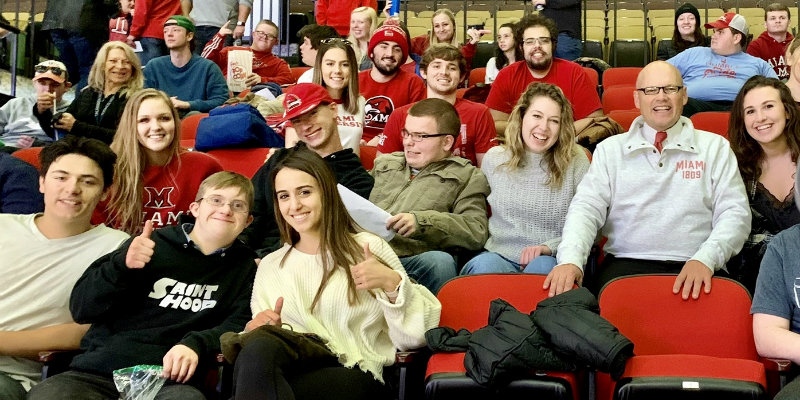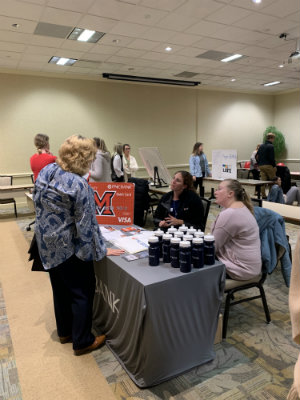Miami Special Education Majors Help Talawanda Students with Disabilities Transition into Adulthood


James M. Loy, Miami University
When Talawanda High School had an especially large group of students with disabilities approaching graduation, it knew it could count on Miami University’s Inclusive Special Education (ISE) majors to help with their transition.
“We started working with Talawanda last year,” says Ashley Johnson, Miami ISE associate clinical lecturer. “They have a large group of students with disabilities who are transition age, so they came to us looking for ways to come up with creative activities and structures to support this large class of seniors.”
Students with disabilities can only stay in public school until they turn 22. By then, they must also have a documented transition plan in place. These highly individualized plans identify various employment education and/or independent living goals, as well as the supports and services that each graduating student will need along the way.
Throughout the past year, Miami ISE students worked alongside Talawanda’s professional transition team to help these transitioning seniors identify their strengths, needs, interests, and goals after high school.
The Miami students also created visual transition plan presentations, and helped the Talawanda students with disabilities advocate for themselves by helping them self-lead their own individualized education program (IEP) meetings and determine their own transition plans.
“It dove-tailed really nicely with the content that I was already teaching in the class,” Johnson says. “Because we talked about transition supports and developing IEP plans and transition plans. So they got to have the experience of engaging in this process, as opposed to me lecturing them about it. It was really wonderful.”
This fall, the newest phase of the partnership recently culminated with Miami students both conducting mock employment interviews at Talawanda, and by hosting a transition fair at the university’s Marcum Conference Center.
Funded by a grant from the charitable Jack J. Smith Trust, the transition fair invited nearly 25 local agencies and employers to share information through breakout sessions, rolling presentations, and one-on-one conversations.
Some of the attending organizations included the Butler County Board for Developmental Disabilities, Access Miami Program, and Best Buddies, as well as the Butler County Regional Transit Authority, Four Paws, Project LIFE, Project SEARCH, the Army, Navy, ROTC, and more.
For the Talawanda students, the fair was an opportunity to get a clearer idea of everything they might want to accomplish after graduation. For the Miami students, it was a chance to engage with the different supports and services they will interact with as future educators.
It was also another way to continue learning outside the classroom by working directly with those they wish to help.
“It was incredibly impactful gaining real-world experience in the career I hope to hold, and being able to apply that which we learned in class,” says Mary Culp, a junior special education major. “I am grateful that, at Miami, I'm not just reading about transition planning in a textbook, but getting to go out and transition plan. I found it incredibly meaningful that we were paired with the same students over the course of the semester, and got to build deep connections and relationships.”

